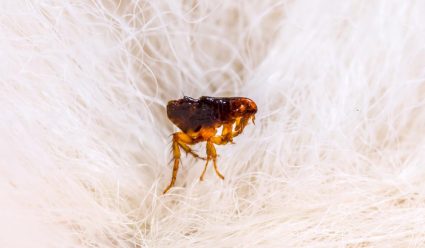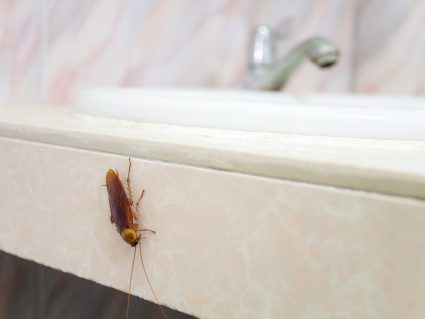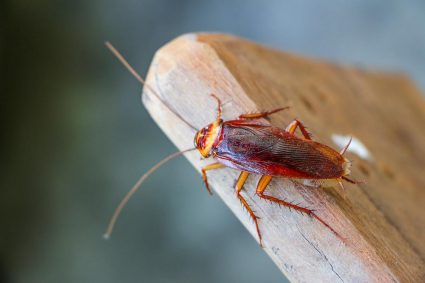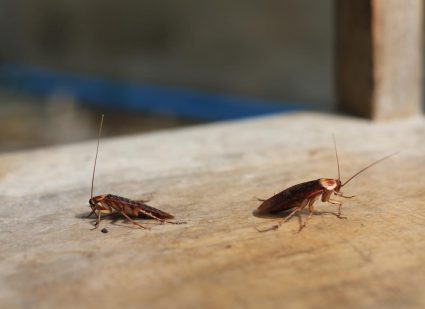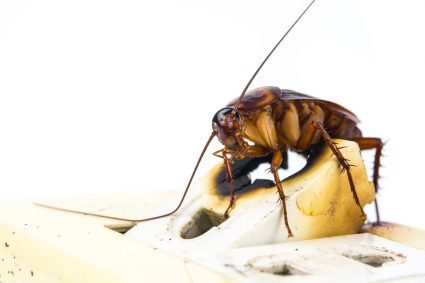
Permethrin is a synthetic pyrethroid insecticide known for its potency against a variety of pests, including lice, ticks, fleas, and mites. But does it kill ear mites? In this in-depth article, we’ll explore permethrin’s effectiveness against ear mites, how it works, its potential side effects, and some alternatives.
Yes, permethrin can kill ear mites. It is a synthetic pyrethroid insecticide that acts on the nervous system of insects, including mites. However, its effectiveness can vary depending on the specific ear mite infestation and the animal’s overall health. It’s essential to consult a veterinarian before using permethrin, particularly in cats, due to potential side effects.
What is Permethrin?
Permethrin is a synthetic chemical that mimics natural extracts from the chrysanthemum flower. It is used in public health mosquito control programs, on food and feed crops, ornamental lawns, livestock and pets, structures and buildings, and clothing. It’s available in different forms, including liquids, powders, dusts, aerosol solutions, sprays, and treated clothing. As a medication, permethrin is used to treat scabies and lice, applied to the skin as a cream or lotion.
How Does Permethrin Work on Mites?
Permethrin acts on the nervous system of insects, interfering with sodium channels to disrupt the function of neurons and causing muscles to spasm. Insecticides and acaricides like permethrin have been reported to be effective against ear mites, specifically Otodectes cynotis. For the treatment of ear mites, it is essential to clean the ear canal mechanically, followed by topical or systemic treatment.
Effectiveness of Permethrin in Killing Ear Mites
Permethrin is an insecticide that is effective in killing various types of mites, including ear mites. In a study on dogs with localized harvest mite infestation, a combination of permethrin and fipronil was found to be effective and well-tolerated. However, it is essential to consult a veterinarian for proper diagnosis and treatment recommendations, as the effectiveness of permethrin may vary depending on the specific ear mite infestation and the animal’s overall health.
Side Effects and Risks
Common side effects of permethrin include itching, redness, numbness, tingling, and rash on the skin or scalp area. In more severe cases, side effects can include trouble breathing, continued irritation of the skin or scalp area, and infected or pus-filled areas of the skin or scalp area. Cats are more sensitive to permethrin than dogs or humans, as it takes their bodies longer to break it down. In cats, exposure to concentrated permethrin can result in serious illness and even death.
Alternatives to Permethrin
There are several alternatives to permethrin for treating ear mites, such as fipronil, ivermectin, selamectin, moxidectin, milbemycin oxime, imidacloprid, and albendazole. It is important to consult with a veterinarian to determine the most appropriate treatment for your pet’s specific situation.
In conclusion, permethrin is an effective treatment for ear mites, but it’s essential to use it responsibly due to potential side effects, particularly in cats. Always consult with a veterinarian before starting any treatment regimen for your pet.
Frequently Asked Questions
Can I use permethrin on my cat to treat ear mites?
No, permethrin is toxic to cats and can cause severe illness or even death. Always consult with a veterinarian for appropriate treatment options for your cat.
How can I apply permethrin on my pet for ear mites treatment?
Permethrin is usually applied as a topical solution after thoroughly cleaning the ear canal. However, it’s important to follow a veterinarian’s instructions for proper application and dosage.
Can humans use permethrin for ear mites?
Permethrin is not typically used for treating ear mites in humans. If you suspect that you have ear mites, consult with a healthcare provider for appropriate treatment.
How long does it take for permethrin to kill ear mites?
The time it takes for permethrin to kill ear mites can vary depending on the severity of the infestation and the individual animal’s health. Consult with a veterinarian for more specific information.
Can I use permethrin to treat other types of mites besides ear mites?
Yes, permethrin is effective against a range of mites, including scabies and harvest mites. However, its use should always be under the guidance of a healthcare provider or veterinarian.

